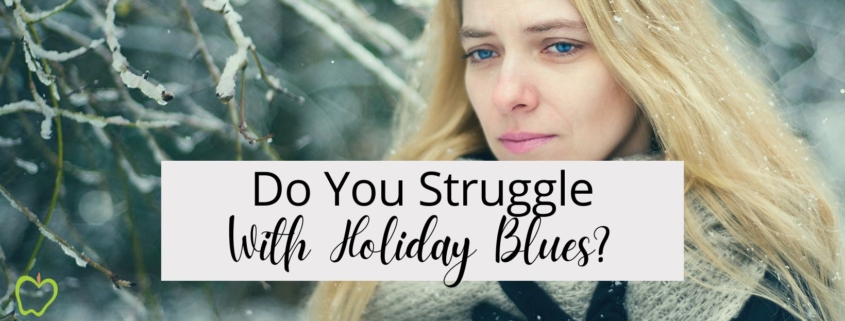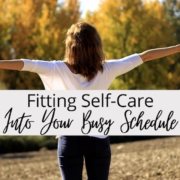Do You Struggle With Holiday Blues?
The Christmas season presents a wide array of stimulation for our senses. The music, images in commercials, colorful decorations, and the food … oh, the food. For many, these holiday hallmarks evoke joy in the season, but some struggle with holiday blues.
Surprisingly, a survey by the National Alliance on Mental Illness (NAMI) shows that 64% of people experience holiday blues.
The holiday blues are “feelings of anxiety or depression during holidays that can be associated with extra stress, unrealistic expectations, or even memories that accompany the season.” These “blues” refer to sad feelings, yet those experiencing holiday blues may feel worried, frustrated, or even disappointed.
What Causes the Holiday Blues?
We are all familiar with the stressors we encounter in the season. These include more social events, pressure to put up decorations and shop for gifts, which can strain finances.
And many are separated from their families, experiencing relationship problems, or feeling grief over family members who have passed. Without those family members, they may feel they can’t celebrate the holidays in the same way.
A contributor to the blues that is often overlooked is the alcohol and food that are often involved in celebrations. Consumption of highly processed, sugary foods prompts insulin spikes and energy crashes that put us on a roller coaster. Alcohol has an effect on both our physiology and emotions, and it can heighten feelings of depression.
Holiday Blues vs Seasonal Affective Disorder
This time of year also coincides with shorter periods of daylight which can contribute to Seasonal Affective Disorder (SAD). Holiday blues are generally temporary, but Seasonal Affective Disorder can last for months from late fall through early spring.
It is usually experienced in more northern areas where days are even shorter, and symptoms include changes in sleep, weight, and low energy.
Shorter days reduce our sunlight exposure and disrupt circadian rhythm. This can limit production of serotonin and can play a role in sleep and mood disruption.
My clients who have struggled with Seasonal Affective Disorder have benefitted from exposure to light soon after waking. Sitting in front of a 10,000-lux light therapy lamp for 20-30 minutes can make a marked difference.
Diet Can Help Beat Holiday Blues
What you eat influences how your body functions and how you feel. Holiday foods include far more delicacies, usually in the form of highly processed, high-carb foods.
Your body digests these quickly and your blood sugar levels spike. Because of the danger to your circulatory system, your pancreas releases insulin to lower the sugar level.
When the food you eat is high in sugars and carbohydrates, it is not unusual to develop an overgrowth of Candida in your gut. This can, in turn, drive cravings for more sugar.
Your body’s cells will also become insulin resistant due to frequent bombardment with insulin. Both of these conditions – insulin resistance and Candida overgrowth – can contribute to depression.
You may be familiar with the neurotransmitters, serotonin and dopamine, as feel-good chemicals in the body. Choosing protein-rich foods, such as eggs, chicken, wild-caught fish, and nuts, can boost production of these neurotransmitters. Even better, eat these foods and reduce holiday sweets and alcohol to help with depression.
In addition to these foods, eating vegetables at least twice a day will not only provide valuable nutrients but also prebiotics to feed the bacteria in your gut. Consuming small amounts of fermented foods also supplies good bacteria to reinforce the microbiome and support neurotransmitter production.
Additional Helpful Steps
If your schedule involves multiple events in one day, pace yourself. It may help to eat vegetables and some protein before going to an event. This will slow the effect of the holiday foods on your metabolism. It may also help you to be less likely to overindulge.
Another simple way to balance your blood sugar is to take a walk after a meal or an event. The simple act of walking uses excess sugar in your system to fuel your muscles and will lower your need for insulin.
Time spent outside can also help with imbalanced moods. Even better if you are able to be in a space with trees – whether a park or a forest. There are numerous studies that demonstrate the benefit of what’s called “forest bathing” for mood and physiology.
You can be thankful if you don’t struggle with holiday blues. Given the number who do, I would encourage you to be mindful of how others perceive the holidays.
Should you be aware of someone who struggles, give them a listening ear and offer support. I may be able to help them implement some of these recommendations if you feel it appropriate to introduce us.










Leave a Reply
Want to join the discussion?Feel free to contribute!